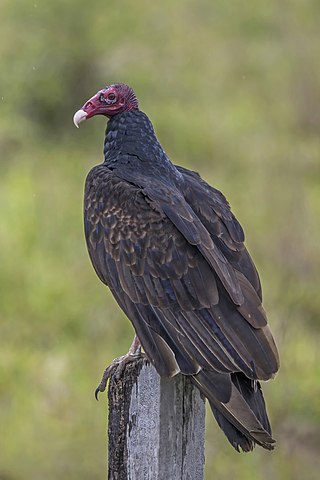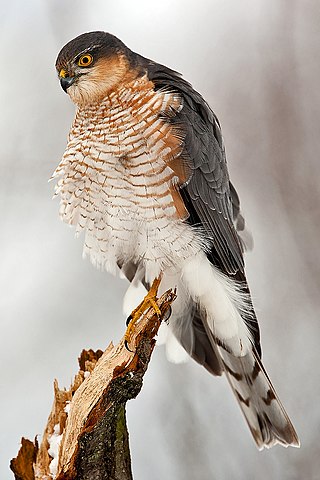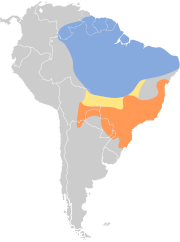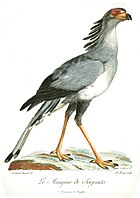
Hawks are birds of prey of the family Accipitridae. They are very widely distributed and are found on all continents except Antarctica.

The turkey vulture is the most widespread of the New World vultures. One of three species in the genus Cathartes of the family Cathartidae, the turkey vulture ranges from southern Canada to the southernmost tip of South America. It inhabits a variety of open and semi-open areas, including subtropical forests, shrublands, pastures, and deserts.

The European honey buzzard, also known as the pern or common pern, is a bird of prey in the family Accipitridae.

Accipiter is a genus of birds of prey in the family Accipitridae. Most species are called sparrowhawks, but there are many sparrowhawks in other genera too, such as Tachyspiza.

The Accipitrinae are the subfamily of the Accipitridae often known as the "true" hawks. The subfamily contains 73 species that are divided into 11 genera. It includes the genus Accipiter which formerly included many more species. The large genus was found to be non-monophyletic and was split into several new or resurrected genera. The birds in this subfamily are primarily woodland birds that hunt by sudden dashes from a concealed perch, with long tails, broad wings and high visual acuity facilitating this lifestyle.

The Levant sparrowhawk is a small bird of prey. It measures 32–38 cm (13–15 in) in length with a wingspan of 65–75 cm (26–30 in). The female is larger than the male, but the difference is not as marked as with Eurasian sparrowhawk. The adult male is blue-grey above, with dark wingtips, and barred reddish below.

The white-eyed buzzard is a medium-sized hawk, distinct from the true buzzards in the genus Buteo, found in South Asia. Adults have a rufous tail, a distinctive white iris, and a white throat bearing a dark mesial stripe bordered. The head is brown and the median coverts of the upper wing are pale. They lack the typical carpal patches on the underside of the wings seen in true buzzards, but the entire wing lining appears dark in contrast to the flight feathers. They sit upright on perches for prolonged periods and soar on thermals in search of insect and small vertebrate prey. They are vociferous in the breeding season, and several birds may be heard calling as they soar together.

The black-chested buzzard-eagle is a bird of prey of the hawk and eagle family (Accipitridae). It lives in open regions of South America. This species is also known as the black buzzard-eagle, the gray buzzard-eagle, or analogously with "eagle" or "eagle-buzzard" replacing "buzzard-eagle", or as the Chilean blue eagle. It is sometimes placed in the genus Buteo.

The Japanese sparrowhawk is a bird of prey in the family Accipitridae which also includes many other diurnal raptors such as eagles, buzzards and harriers. It was formerly placed in the genus Accipiter. The bird is known by many alternative names such as the Japanese lesser, Asiatic, or Eastern sparrowhawk. This species is a small raptor with broader and rounder wings and a shorter tail. Its total length measures 23–30 centimetres (9.1–11.8 in). It has a dark back and whitish underside with brown-grey barring and red-brown colouring on the sides in males, and with heavier brown barring on the abdomen in females. Both sexes have a stripe across the throat, but its more obvious in the female. Is it typically identified by its appearance, but occasionally produces a chattering kiki-kik-kik... sound. This species generally breeds in parts of Russia, Korea, Japan, and China. There are three subspecies of Japanese sparrowhawk that differ by distribution and appearance. The species is globally listed as least concern, although it is listed as endangered in Japan and protected in China.

The tiny hawk is a small diurnal bird of prey found primarily around humid forests of the Neotropics. It is primarily a bird-eater, and is known to prey on hummingbirds.

The double-toothed kite is a species of bird of prey in subfamily Accipitrinae, the "true" hawks, of family Accipitridae. It is found from central Mexico through Central America into much of northern and eastern South America.

The rufous-thighed kite is a species of bird of prey in subfamily Accipitrinae, the "true" hawks, of family Accipitridae. It is found regularly in Argentina, Bolivia, Brazil, Guyana, Paraguay, and Suriname and as a vagrant in Colombia, French Guiana, and Venezuela.

The pygmy eagle or New Guinea hawk-eagle is a bird of prey found in New Guinea. Its natural habitats are primarily subtropical or tropical moist lowland forest and subtropical or tropical moist montane forest. It is the one of the smallest species of eagle.

The barred hawk is a species of bird of prey in the family Accipitridae. It has also been known as the black-chested hawk.

Harpaginae is a subfamily of the bird of prey family Accipitridae. The species are found in Central and South America.





















